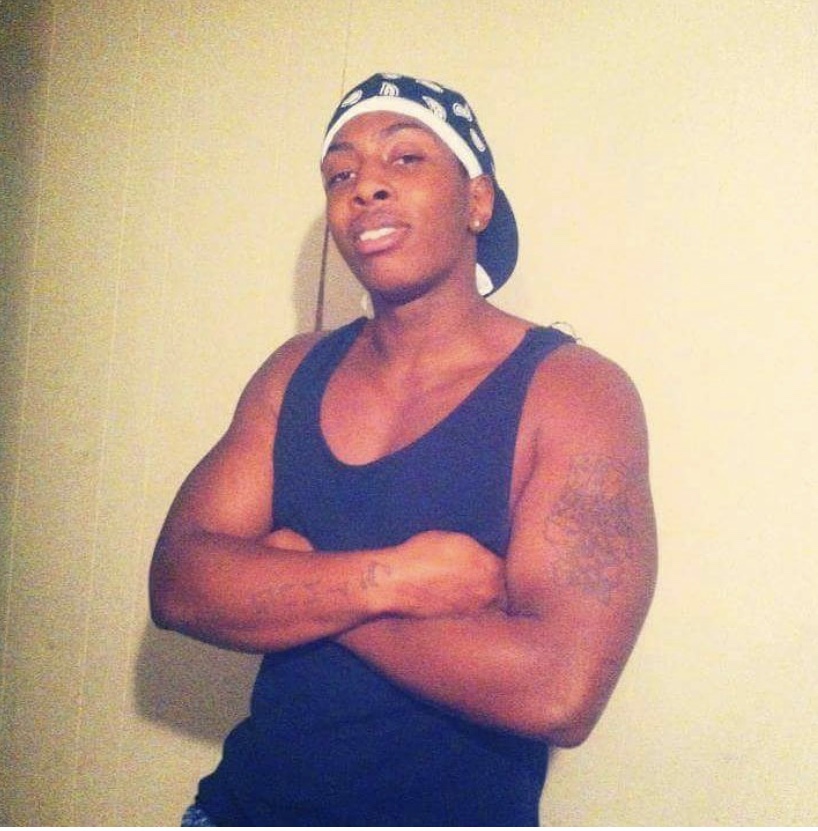Case
Christopher Rogers
Christopher Rogers is 29 years old and is currently detained in the East Baton Rouge Parish Prison. He has already served more time than his charges carry, but he remains imprisoned because of the COVID-19 pandemic.
In mid-April, Mr. Rogers reported symptoms to a nurse, but the medical staff didn't do anything because they said that no one else had tested positive for COVID-19 in his area. He was left for days with a bad headache and body aches, and he submitted a medical request to get his temperature checked. When Mr. Rogers had a temperature, he was moved to lockdown in line B3 of the jail before his test results came back positive for COVID-19 a few days later.
"B3 is in part of the old building in the prison that was closed before the coronavirus hit because it was filled with mold and rats. I was never allowed to leave the B3 line. I couldn't go outside, get any rec time, or get my own food. We had no way to talk to anyone else in the prison, except for the other guys on B3. We were basically just left back there. There were some windows on B3, but we could barely see out of them. They were on a catwalk outside of our cells. We didn't get to see much of the outside world on B3."
Mr. Rogers reports extremely unsanitary conditions in B3. The guards never clean the halls, and only sometimes bring cleaning supplies effective against the virus for the men to clean their own cells. The showers, which all the men in his line had to share, were filthy and had only cold water. There was mold on the shower mat and the shower itself was rusted.
Mr. Rogers's family put money in his commissary account so he could purchase personal hygiene supplies and food, but he was not able to receive items in lockdown. He and the other men isolated there didn't have access to a TV, and the guards didn't provide them with any information about what was going on in the world, or how to protect themselves from coronavirus. Their primary source of information came from family calls.
Mr. Rogers said that it was stressful to be in B3 because the men were bored, isolated, and didn't know what was happening. They were also surrounded by older people in bad conditions. "One man was really sick. We would bring him water when we could, but it was depressing and stressful to watch him struggle. I have been diagnosed with depression and anxiety, and being on B3 was making me more depressed and stressed."
Mr. Rogers was constantly afraid that he would get sick again because he continued to be held with people who were ill. He wrote to the medical unit about the fact that he was not given medical care for non-coronavirus needs. They never responded to his requests: "I felt like I couldn't get the medical care I needed and that we were being left back there to see if we would die."
Mr. Rogers filed a grievance about the men not having access to disinfectant to clean their cells and common areas in lockdown. Subsequently, the deputy involved in the grievance confronted Mr. Rogers, questioned him aggressively about the grievance, and shoved him into the wall. Mr. Rogers never received an official response to his grievance.
On May 8, Mr. Rogers left lockdown and returned to his F5 line, where he says the conditions are not much better. The area is hot and dirty; it is impossible for the men to be six feet apart from each other at all times; the eating area is covered with food particles and doesn't get cleaned regularly; there are many rats, and he has to sleep with his commissary items in bed so the rats don't eat them; and there is so much dirt on the windows that he and his other linemates can't even see out of them. Mr. Rogers also reports that one man who was COVID-19 positive was transferred out of lockdown and back to his line.
The guards did not permit Mr. Rogers to attend his court date on May 13, where he would have pled to time served, and so he remains detained. When he is released, he plans to quarantine with friends until his test results come back negative. Then he will move home with his mother and family members who rely on him to provide financial support. "I know they really need me out there."

